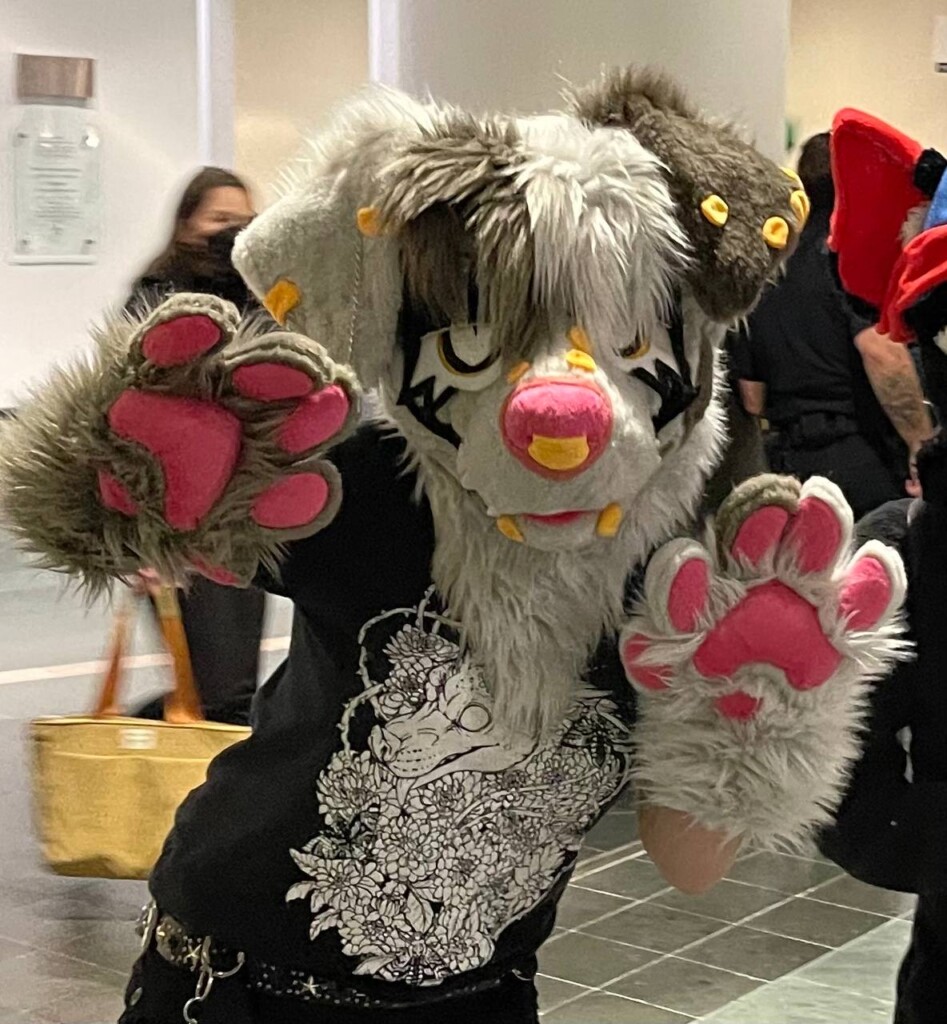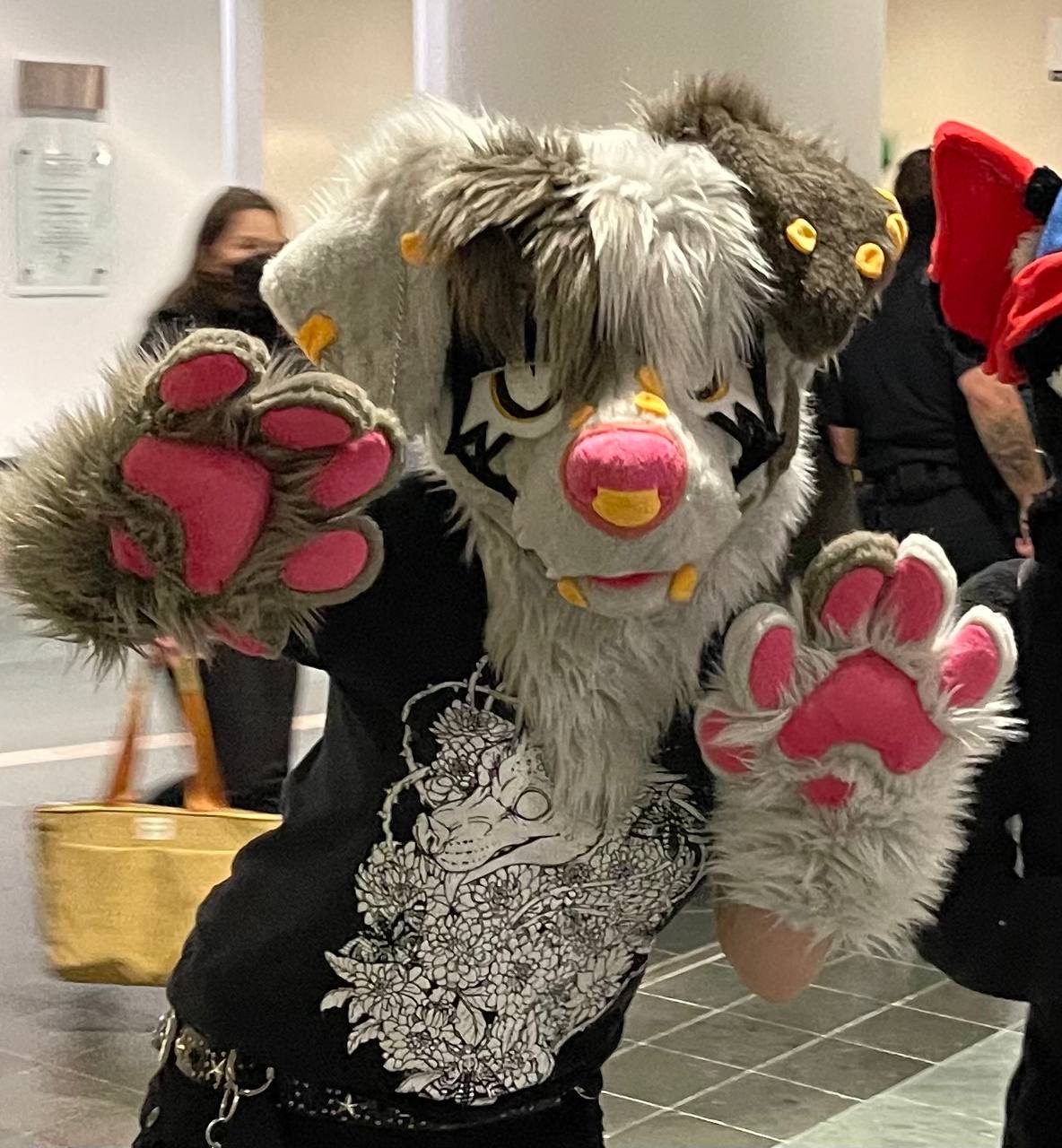A few months ago, as I did my daily walk to class through the tunnels to escape the February cold, a new brightly colored poster on the wall caught my eye. “Furries? At MY University? More likely than you think” was captioned above an image of Rocky, advertising UR’s unofficial furry club known as the UR Furry Club.
Started by junior Alex Sinclair as a first-year, the UR Furry Club continues to grow and connect people interested in being a part of the small, on-campus community. However, despite the ever-growing community, constant vandalization of the club’s poster has made members feel ostracized by the University.
Sinclair, the club’s unofficial president, told the Campus Times they felt pushback from the University community. Beyond posters being torn down, students have also posted pictures mocking members online, scaring potential members away from joining.
“I have seen, in person, people rip [a poster] off the wall, rip it into pieces, stomp on it, and then throw it in the trash,” Sinclair said. “So, there isn’t direct bullying or harassment, but it is clear we’re not completely welcome, even though it’s just a club, it’s just a group chat of people.”
Outside of the University, the debate about the furry community’s right to exist has been thrust into the political spotlight, like Oklahoma State Representative Justin Humprey introducing a bill to remove students associated with the fandom and a recent protest at a Utah middle school.
The pushback seemingly derives from rumors about the purpose of fursuits. Misconceptions — that fursuits are used for sex, for example — have caused people to spread misinformed hate online and in person.
“It is very dehumanizing. People don’t see that there is a person behind the costumes, behind the username,” Sinclair said. “It makes it even easier to target those people.”
But for many, being a furry is about community. It is a creative outlet and allows for those who want to express themselves through a fursona: an original character they can relate to, that represents something they want to be.
According to FurScience, a website worked on by UR alum Dr. Kathleen Gerbasi ‘76, a furry is “a fan of media that features animal characters doing ‘human’ things (e.g., walking, talking).”
For Sinclair, anyone can be a furry as long as “you like to connect with it.”
Sinclair, who has a fursona themself, enjoys going out in their fursuit based on their fursona — Danny the Dalmatian. It’s all tied to a sense of belonging for them, knowing that there are people who all enjoy the same things.
But being a part of the furry fandom is a different experience for everyone. It can be more intensive, like making fursonas and going to conventions or FurBowls (furries meeting up at a bowling alley), but can also be limited to hanging out in clubs or group chats.
The club also allows people to remain anonymous so everyone can be themselves without worrying about bullying. This has prevented the UR Furry Club from becoming official: they do not want to have to list members’ names on the CCC app.
“[Going public] isn’t safe for everybody, that isn’t comfortable for everybody,” Sinclair said. “It’s not entirely accepted at the University of Rochester. So it is a safety issue for some people, and it’s a lot of work to get started.”
For the Furry Club to be officially recognized, they would have to register through Wilson Commons Student Activities (WCSA) which would list members’ names, Dr. Col Raimond, Director of LGBTQ Life and AS&E Staff Ombudsperson for the Burgett Intercultural Center (BIC), told the CT. Another option could be group discussions through the BIC. Groups like the Transgender, Intersex, Non-Binary, and Two-Spirit (TINT) or Students Avoiding Socialization Together (SAST) allow members to meet up for weekly discussions and have time to socialize with others in the community while members’ identities remain protected.
“If we reserve a space or room for them, we just put ‘It’s a BIC private meeting’ so nobody knows who’s there or why they are there,” said Dr. Raimond. Only those who send out emails to remind members of the discussions would know of their identities, other than those who are in the group.
BIC also offers resources like the ability to bring in a speaker from the fandom or get books to help educate students at UR. Members are also encouraged to fill out bias reports through the BIC, including “the stuff that they see online.”
The club continues to be open for anyone to join through Telegram, whether they are a long-time furry or are newly interested. Sinclair hopes the club will continue to be “a place for exploration without judgment,” allowing members to come and go as they see fit.
“The people that do join, the people that are looking for a community, I want to provide a place where they can go,” Sinclair said.



